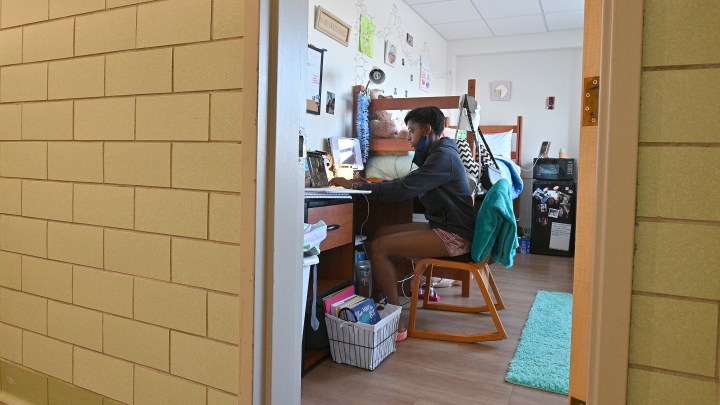
Remote college creates fertile ground for internet mischief
Remote college creates fertile ground for internet mischief

More and more colleges and universities are going 100% online as the fall semester starts and COVID-19 cases remain high.
The latest include North Carolina State, Drexel and Oberlin, which said Aug. 10 it would begin classes remotely before opening to in-person instruction Sept. 7.
Thing is, more virtual communications means more potential hacking. And university IT managers are going all out to warn students and faculty about the biggest vulnerability right now: email phishing scams.
One recent attempt almost duped a cybersecurity professor. At Cedarville University in Ohio, Phoebe Tsai got an email ostensibly from the bookstore.
“That email lists all the courses that I was teaching,” she said. “The correct matching textbooks. So that notification asked us to pass the links to all our students.”
But the links were bogus. And thanks to a warning from the actual bookstore, Tsai stood down.
When faculty and students do click malicious links, fraudsters can steal personal info and sell it. Or hack into databases and pilfer research.
Allie Mellen at the security firm Cybereason said one enticing email going around now offers students money and promises “financial aid services, claiming they’ll give them student loan forgiveness or they’ll pay for the scholarship applications.”
With so many students off campus, it’s harder to verify suspicious activity in person. And often, students log on from outside protected campus IT networks.
“When email is going out to folks at home, we just don’t have control over all of those home networks,” said Andrew Korty, chief information security officer at Indiana University.
Analysts say most email hackers going after students want to make a quick buck. But those targeting faculty may be foreign governments.
Clarification (August 24, 2020): The duration of time that Oberlin College plans to conduct classes remotely has been updated in the text.
There’s a lot happening in the world. Through it all, Marketplace is here for you.
You rely on Marketplace to break down the world’s events and tell you how it affects you in a fact-based, approachable way. We rely on your financial support to keep making that possible.
Your donation today powers the independent journalism that you rely on. For just $5/month, you can help sustain Marketplace so we can keep reporting on the things that matter to you.


















